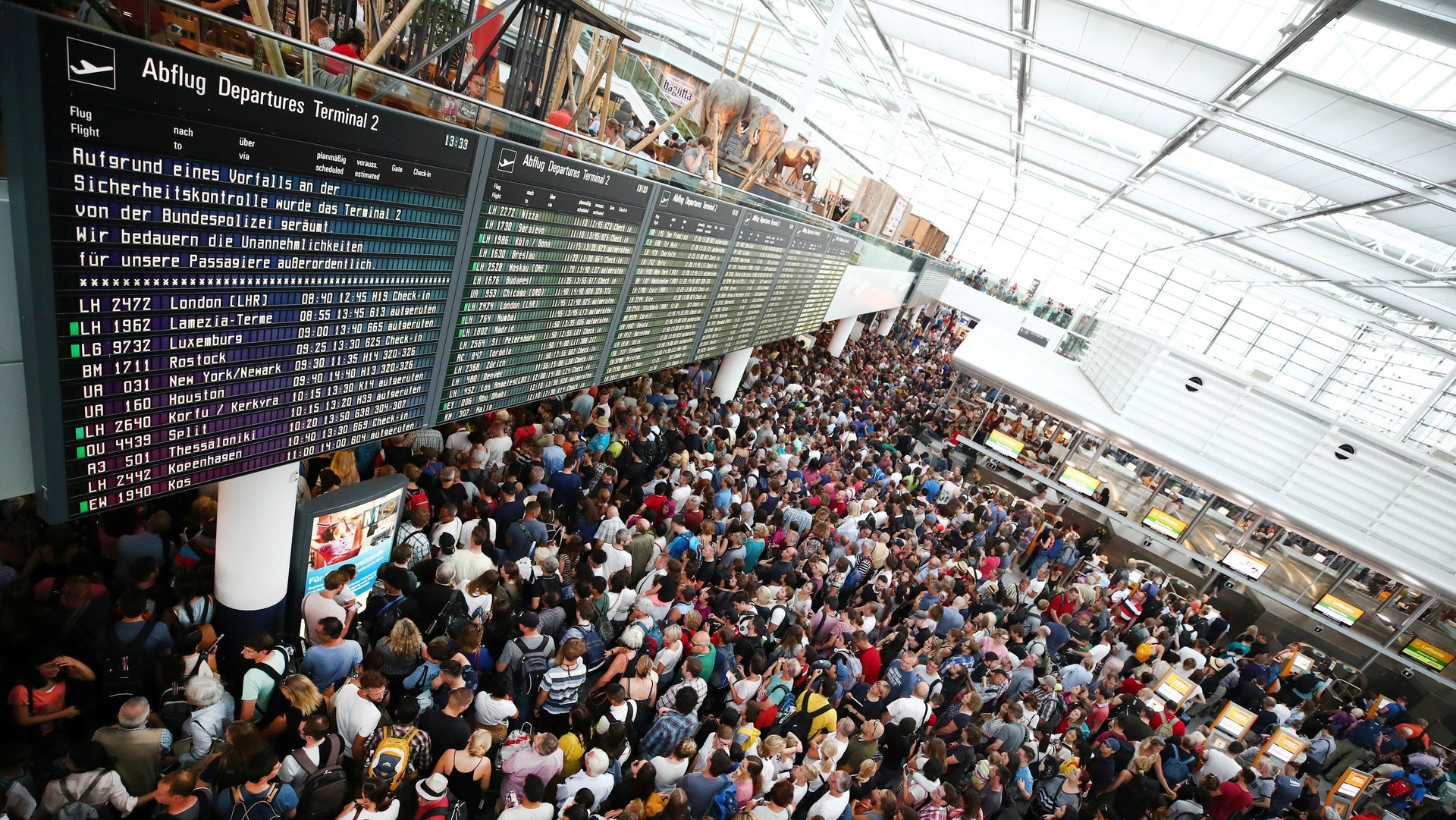You might be missing out on money you’re owed for delayed or canceled flights
Having a flight delayed, disrupted, or canceled outright is a miserable experience. Getting paid for your inconvenience can reduce the sting somewhat. But many of us aren’t claiming compensation we’re entitled to—and leaving money on the table.


Having a flight delayed, disrupted, or canceled outright is a miserable experience. Getting paid for your inconvenience can reduce the sting somewhat. But many of us aren’t claiming compensation we’re entitled to—and leaving money on the table.
According to the flight compensation service AirHelp, citizens of what is arguably the most customer service-sensitive nation, America, are missing out disproportionately, when compared to Europeans.
A survey found that less than 25% of Americans on a disrupted flight eligible for compensation actually filed a claim, while a separate survey found that nearly half of Europeans did. Meanwhile, 415,800 American passengers are owed $292 million in compensation from airlines for the first six months of 2018, which they either have not claimed or do not know they are entitled to. (This aggregate data is based on a variety of sources, including government agencies, airport databanks, flight-tracking vendors, historical resources and commercial data brokers.)
AirHelp wants to, well, help—for a cut of the compensation awarded, usually 25% to 35%, or up to 50% if legal action is required. So today the company is launching a Passenger Rights Awareness Month, with the hope of increasing the number of affected passengers who seek the compensation they are owed.
So why do Americans lag behind? Mostly due to differing laws that they may not be aware of. Inside the US, airlines are not required to provide compensation for flights that are delayed or canceled, though some do. They are only legally required to provide compensation when a passenger is bumped because a flight is overbooked. So American travelers are not accustomed to expecting a check for a delayed or canceled flight.
In Europe, however, things are different. Since 2004, under a law known as EC 261, European airlines—as well as carriers that fly into or out of the EU, including American ones—are required to provide compensation to all passengers if a flight is delayed or canceled by more than three hours. Compensation can be up to €600 ($695), depending on flight distance and the length of delay. This applies in all cases except for “extraordinary circumstances” outside of the airline’s control, such as natural disasters or terrorism. In April, the European Court of Justice ruled that so-called “wildcat strikes” should also be considered claimable, a big win for passengers affected by Europe’s frequent industrial actions. (Though not all airlines are complying yet.)
For international flights outside of the EU on a non-EU airline, passenger rights are somewhat protected by the Montreal Convention, which is ratified by 120 states including many in Asia, South America, and Africa. When it comes to disruptions, this treaty doesn’t entitle passengers to compensation for the delay itself, as EC 261 does, but rather any financial loss—meals, hotel rooms, etc—that come as a result of a delay. The same exemption of extraordinary circumstances applies.
Christopher Elliot, co-founder of the consumer advocacy group Traveler’s United, said the US has a ways to go to catch up: “The US is far behind other countries in terms of protecting travelers. Current regulations are inadequate and in the current administration, the few rules on the books are not being adequately enforced.” Meanwhile, Canada is implementing a law similar to Europe’s with its Transportation Modernization Act.
But all that doesn’t mean that American travelers should miss out when traveling abroad. By partnering with the US travelers advocacy group Travelers United to raise awareness, AirHelp hopes to educate Americans on what they can claim in compensation when traveling in Europe and elsewhere, and help them navigate the compensation process. The hope is that this will create more awareness and demand for improving passenger protections across the world—and meanwhile, you might stand to make some cash for your travel woes.